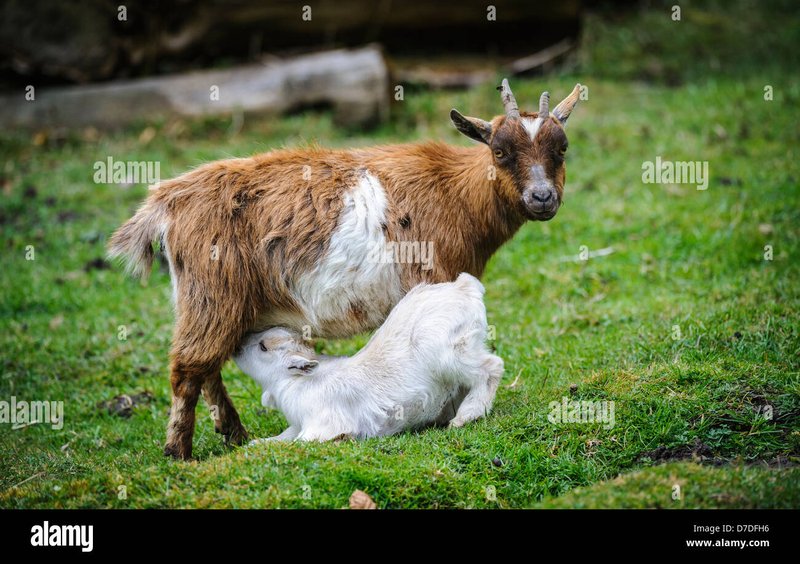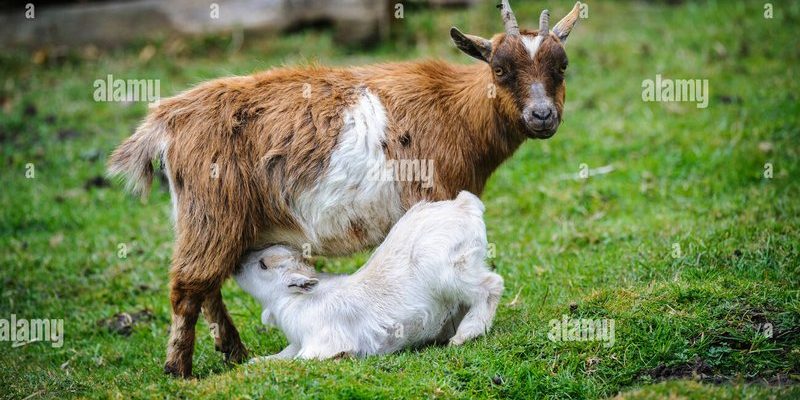
Feeding Pygmy goats isn’t just about tossing them some hay and calling it a day. Their small size and unique metabolism mean they have specific dietary requirements to thrive. In this guide, we’ll dive into what these cute little goats need to stay healthy, covering everything from their favorite foods to essential vitamins and minerals. So, grab your favorite drink, and let’s chat about how to make sure your Pygmy goats are getting the best nutrition possible!
Understanding the Basics of Pygmy Goat Nutrition
Before we dive into specifics, it’s good to understand the basics of what makes up a Pygmy goat’s diet. These goats are native to West Africa and have evolved to thrive on a varied diet in their natural environment. In captivity, they need similar components to replicate that balanced nutrition.
Pygmy goats are herbivores, which means they primarily eat plants. Their diet should consist of forage, grains, and supplements. Forage is an essential aspect of their diet and includes grasses, hay, and other plants. The quality of forage impacts their overall health, so it’s essential to choose high-quality hay that’s free from mold or dust.
In terms of quantity, an adult Pygmy goat typically eats about 2-4% of their body weight daily. This can vary based on age, activity level, and whether they’re pregnant or lactating. Just picture it as the equivalent of us needing different portions based on how active our day is!
Forage: The Foundation of Their Diet
Forage should be the star of your Pygmy goat’s diet. It’s like the bread and butter of healthy eating for them! That means selecting the right type of hay is critical.
Grass hay and legume hay are fantastic options. Grass hay, such as Timothy or Orchard grass, provides fiber and nutrients that help keep their digestive system running smoothly. On the other hand, legume hay, like alfalfa, is richer in protein and calcium, which can be beneficial for growing kids or lactating females.
You might be wondering how to tell if your hay is good quality. Check for bright color, a pleasant smell, and a lack of mold or dust. Fresh, clean hay not only tastes better but also helps prevent health issues like scours or obesity.
Grains and Pellets: What’s the Deal?
While forage should form the bulk of their diet, grains and pellets can be beneficial as well. Think of them as the side dishes on the plate. These can provide a boost in energy and essential nutrients. However, it’s important not to overdo it.
Pelleted feeds often include a mix of grains, vitamins, and minerals specifically designed for goats. These can be a convenient option since they’re easy to measure and feed. Generally, a small amount (about a quarter cup per goat, per day) is sufficient, particularly if they’re getting good forage.
When choosing pellets, look for ones that are specifically formulated for pygmy or dwarf breeds. They usually have the right balance of nutrients. Just like you wouldn’t want to eat a plate of dessert every meal, we need to be cautious about how much grain we feed our goats!
Supplements: A Little Extra Boost
Sometimes, even with the best hay and pellets, your Pygmy goats might need a little extra help. That’s where supplements come in! Think of these as the vitamins that help us fill in nutritional gaps in our diets.
Common supplements for goats include minerals like calcium and phosphorus, as well as vitamin A and selenium. These nutrients support bone health, reproductive health, and immune function. Depending on their diet, you might need to provide a mineral block or loose mineral mix.
When introducing supplements, it’s essential to do so gradually. Just as we wouldn’t want to suddenly change our diet, goats need time to adjust. Monitor how they respond to any new supplements, and consult with your veterinarian if you’re uncertain about what your goats may need.
Water: The Unsung Hero
Now, let’s talk about water. You might think it’s not as exciting as hay or grains, but trust me—water is critical. Just like us, goats need plenty of clean, fresh water to stay healthy and hydrated.
Make sure your goats have access to water at all times. In colder months, check their water supply frequently to ensure it doesn’t freeze. A good rule of thumb is that goats can drink about a gallon of water each day, sometimes more if it’s hot outside.
If you’re ever unsure whether your Pygmy goats are drinking enough, watch for signs of dehydration, like dry gums or lethargy. Keeping their water clean and available will help keep them feeling lively and bright.
Be Mindful of Treats and Fats
Treats can be a fun way to bond with your Pygmy goats. However, it’s essential to approach this with care—too many treats can lead to health issues. Just like we shouldn’t fill our diets with junk food, we need to be mindful of what we give our goats!
Healthy treats could include fruits and veggies like carrots, apples, or pumpkin. These can provide variety and enrichment in their diet. But be cautious not to overindulge; moderation is key! A few bites here and there go a long way, so aim for treats to make up no more than 10% of their daily intake.
Also, keep an eye on their weight. Pygmy goats love food, and it’s easy for them to become overweight. Instead of fatty snacks, stick to low-calorie options that still satisfy their cravings.
Tailoring Diets for Special Needs
Just like humans, Pygmy goats can have different dietary needs depending on their life stage or health status. Pregnant or nursing mothers, for example, need additional nutrients to support their kids. This might mean increasing their protein and calcium intake.
If your goat is aging or has special health concerns, it may also require a tailored diet. Speak with a veterinarian who understands goat nutrition to ensure you’re meeting their specific needs. They can offer personalized advice and adjustments to help keep your goats thriving.
Keeping an eye on your goats and adapting their diet to their changing needs is like keeping an updated recipe book for your family. You want to refine and adjust based on what works and what doesn’t!
In conclusion, maintaining the right balance of forage, grains, and supplements is crucial in feeding and meeting the nutritional needs of your Pygmy goats. Always prioritize quality over quantity, keep their water fresh, and treat them occasionally, but mindfully. With the right care and attention, your little goats will reward you with their delightful energy and affectionate personalities. Happy goat keeping!

